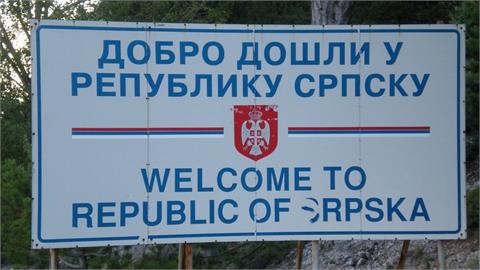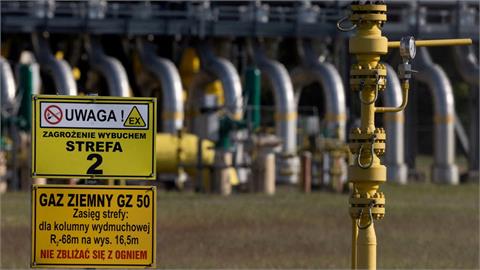Cheniere Energy Inc (LNG.A) has asked the Biden administration to exempt it from limits on emissions of carcinogenic pollutants, arguing they would force the top U.S. exporter of liquefied natural gas to shut down for an extended period and jeopardize the country’s efforts to speed up supplies to Europe, according to documents reviewed by Reuters.
The demand imposes an uncomfortable dilemma on President Joe Biden’s administration as it tries to balance efforts to cut pollution from the fossil fuel industry against promises to help European allies cut energy ties with Moscow following its invasion of Ukraine.
Denying Cheniere could block the bulk of U.S. LNG exports for months or years, while meeting his demand would mean continued emissions of toxic pollutants into poor, minority neighborhoods Biden has pledged to protect.
Texas regulators have already given the massive Cheniere LNG plant on the outskirts of the Gulf Coast city of Corpus Christi a pass for exceeding emissions limits for other pollutants, according to an earlier Reuters report. Read more
The request also reflects enormous financial vulnerability for Cheniere and its shareholders at a time when it is benefiting from increased sales and rising stock prices.
At issue is a rule in the US Clean Air Act called the National Emissions Standards for Hazardous Pollutants (NESHAP), which imposes restrictions on emissions of known carcinogens like formaldehyde and benzene from stationary combustion turbines.
The Environmental Protection Agency (EPA) announced in February that starting in August, the rule will apply to two types of gas turbines that had been excluded from regulation for nearly two decades.
Gas turbines emit formaldehyde and other dangerous pollutants through a chemical transformation that occurs when methane is overheated.
About 250 US gas turbines will be subject to the rule, according to an EPA listing that showed Cheniere is the only LNG company that uses such turbines and whose facilities will be impacted.
The Houston-based company, which accounts for about 50% of U.S. supercooled fuel shipments, told the EPA in a series of emails this spring that its two LNG facilities in Louisiana and Texas use a unique turbine design that doesn’t cannot easily be equipped with pollution control.
“The design of Cheniere’s LNG terminals is complex and the turbines in question are located on raised pads with limited space for the installation of control equipment,” Cheniere’s law firm Bracewell said in a letter sent. via email to EPA Administrator Michael Regan on March 8.
“Potentially imposing significant costs and operational disruptions on the U.S. LNG industry as the administration focuses on Europe’s strategic need to break its dependence on Russian gas is counterproductive,” he said. declared.
A separate email from Cheniere dated March 9, sent to other EPA officials, said design and engineering work to assess the feasibility of retrofitting all 62 turbines at its facilities would likely take ” several years”, which would make it impossible to meet the federal pollution standard in time. .
The company has asked the EPA to reverse its decision to subject gas turbines to the NESHAP rule, or to exempt the specific design used by Cheniere, according to the documents. Company officials then met with senior EPA officials, including Principal Deputy Assistant Administrator Joseph Goffman and EPA Assistant Administrator Janet McCabe, to discuss the matter, according to the documents.
The EPA confirmed that Cheniere, through his law firm Bracewell, made the request for regulatory relief and that agency staff and officials met with the company in March and April. to talk about it.
“At this time, we have not made a decision to lift the suspension or issue an exemption,” the EPA said in a statement.
Cheniere’s request could carry some weight in the Biden administration as one of the few companies advising a White House and an EU-backed task force developing a plan to wean EU countries off the hook. Russian gas.
OVER TWO DECADES
The EPA first mandated the standard for stationary combustion turbines under NESHAP in 2004, but issued a “suspension” temporarily excusing two types of gas turbines commonly used by the power industry after business groups asked to exclude them from regulation – arguing that the pollution they create is “negligible”.
The EPA kept this stay in place for 18 years, but never officially removed the turbines from the list due to a 2007 decision by the DC Circuit Court of Appeals stating that it had no no power to do so.
In February 2020, after environmental groups threatened to sue the agency for inaction, Biden’s EPA announced it would finally lift the suspension and require operators to meet the standard.
Under the rule, these turbines will have to comply with an emissions limit of 91 parts per billion formaldehyde within 180 days. According to the EPA, this level of formaldehyde is supposed to ensure lower emission levels for other hazardous chemicals.
Frank Maisano of Bracewell told Reuters Cheniere was awaiting an official response from the EPA to the company’s request to be exempted from the rule.
Neither Maisano nor Cheniere told Reuters why the company had used a turbine design at its facilities that could not easily accommodate the equipment that might be needed if the regulatory suspension of gas turbines were lifted.
In his correspondence with the EPA, Cheniere said his facilities were built according to regulations in effect at the time. The Sabine Pass facility, which produces around 30 million tonnes per annum (MTPA) of LNG, began operating in 2016, while the 15 MTPA Corpus Christi plant entered service in June 2018.
Cheniere last month approved a major expansion of its Corpus Christi facility that would add seven liquefaction trains to produce about 10.5 MTPA of LNG. Read more A spokesperson for Cheniere told Reuters the company would use electric turbines for the new trains, instead of gas turbines.
(by Reuters, July 8, 2022)



